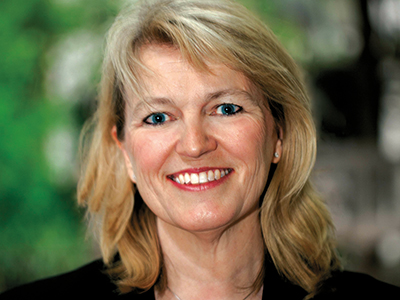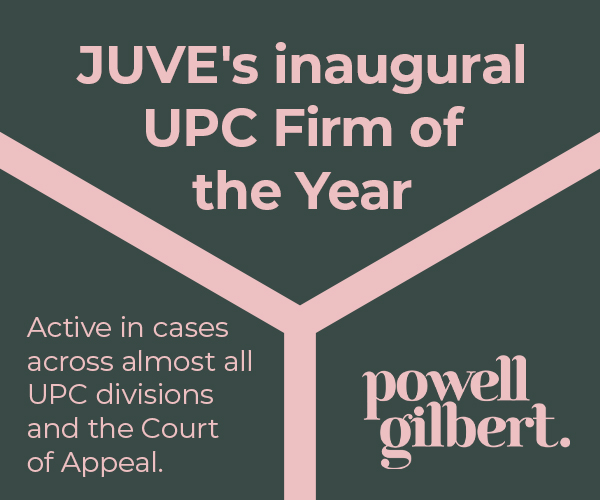Powell Gilbert opens new Ireland office on eve of UPC
Powell Gilbert is expanding its patent practice to Ireland. The day before the launch of the Unified Patent Court, the IP boutique has announced the opening of an office in Dublin, to support in advising and representing clients at the Europe-wide court. All 14 of Powell Gilbert's partners are registered to practice in Ireland, although the country has not yet ratified the UPC Agreement.
31 May 2023 by Amy Sandys
One of London’s market-leading IP litigation boutiques, Powell Gilbert, is expanding into Ireland. The firm, which currently has 34 lawyers situated in the UK capital, has opened an office in Dublin on the eve of the UPC. Powell Gilbert’s membership of the European Patent Lawyers Association (EPlaw) means it has long been involved in the development of UPC case law and other matters, for example judicial training.
The office opened this week and, according to the firm, its partners will be working from the location on a regular basis. All 14 of Powell Gilbert’s partners are admitted to the Irish Roll of Solicitors, which – should Ireland ratify the UPCA – would authorise them for UPC proceedings. It will operate in Ireland as Powell Gilbert (Europe) LLP.
Much speculation has abounded regarding the role patent boutiques will play in the UPC, especially those located in the UK following the country’s Brexit-related withdrawal. In February 2013, 25 EU member states – including Ireland – signed the Unified Patent Court Agreement. For some practices, opening an office in Ireland is a clear gateway to deeper involvement in the Europe-wide court system.

Penny Gilbert
Powell Gilbert sets its sights
Expansion into Ireland will complement the firm’s existing cross-border work. Currently, it coordinates disputes across various sectors, including life sciences and mechanics. For example, Powell Gilbert’s work for BioNTech, Edwards Lifesciences, Ocado and Philip Morris demonstrate its position in pan-European patent battles.
Penny Gilbert, partner at Powell Gilbert, says, “We have built a reputation for partnering with the highest-calibre patent litigators across Europe to deliver solutions for clients in complex international litigation. Our Irish office represents the next logical step in this approach.”
She says, “It enables us to combine our extensive patent litigation and European co-ordination expertise, technical strength and depth of knowledge with the support of local counsel to create the optimal teams for our clients’ European litigation strategies. This is both within the UPC, and across non-UPC countries.”
Gilbert continues, “It has always been our intention to participate fully in the UPC, which we believe is of enormous strategic importance to clients. We are actively working with clients on their UPC strategies and filings in preparation for the UPC start date.”
While a leading litigation firm in the UK, Powell Gilbert also generates income through its coordination of international patent disputes. Clearly, it must demonstrate active experience in UPC cases to claim a share of coordination work. Speaking to JUVE Patent in March, partner Peter Damerell said, “We are monitoring the development of the UPC and the needs of our clients. If those require us to change our offering, we’re flexible enough to be able to respond quickly.”
Ireland commits to referendum
While Ireland has signed the UPCA and has announced its intention to participate in the Unitary Patent system, it is not yet a fully ratified member of the UPC. In June 2022, the country’s government committed to holding a referendum on participation in 2023 or 2024 at the latest. Ireland has not yet signed the UPC Agreement’s Protocol on Provisional Application (PPA), or the Protocol on Privileges and Immunities (PPI). Its signature to both protocols is contingent on a ‘yes’ vote.

Alex Wilson
In March 2023, corporate IP group Ibec, as well as Ireland’s Association of Patent and Trade Mark Attorneys (APTMA), called on the Irish government to hold the referendum this coming November. This would coincide with a planned constitutional vote on gender equality.
Common law country
Ireland is one of the only UPC signatory countries where participation depends on a public vote. If the referendum results in a ‘yes’ outcome, the UPC can create a local division in Dublin, with one national judge and two further judges from the overall pool of UPC judges.
The country’s common law traditions mean it would be a key asset to the supranational court system, which the member states founded on common law principles.
Alex Wilson, partner at Powell Gilbert, says, “We are looking forward to handling UPC litigation from our Dublin office when the court rooms open their doors. This comes after years of our active involvement in the development of the system – inputting into the rules of the court and advocates’ code of conduct and the training of judges through EPlaw.”

